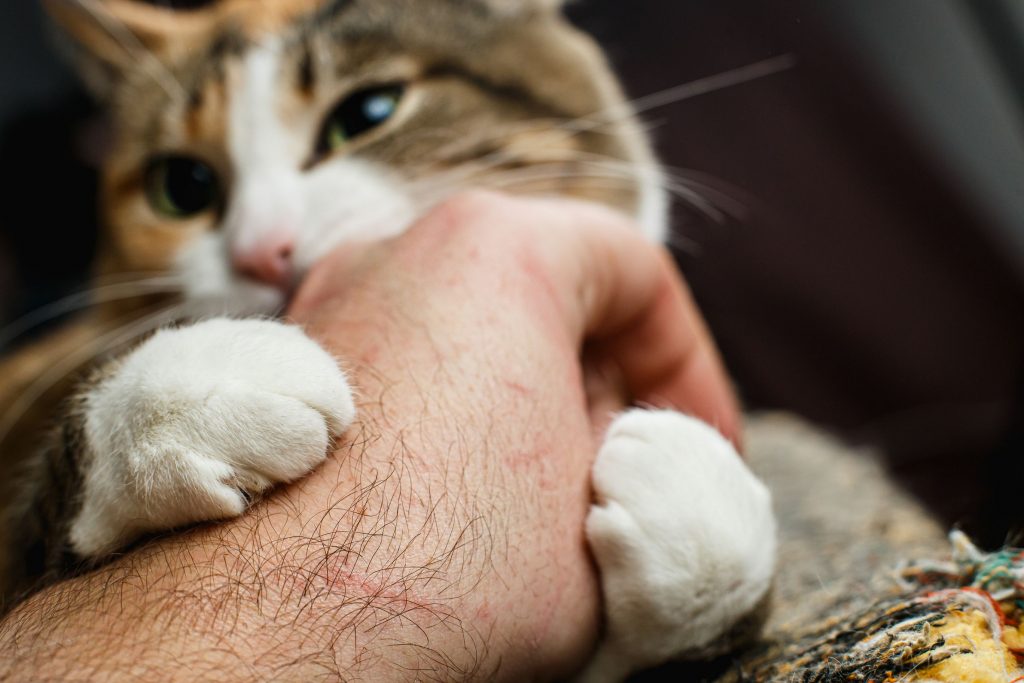How To Keep Your Cat From Scratching You.
We can all agree that scratching behavior from your cats is no fun, especially if you have young children in the house.
Discovering the root of this behavior can help curb excessive scratching and hopefully help you have a more peaceful relationship with your cat and their claws.
What Causes Scratching Behavior?
In many cases the root cause of aggressive scratching dates back to the kitten years. Scratching and biting is a normal part of your kitten’s development. However, it’s important that you as the owner train your kitten early to let them know that scratching and biting you or your furniture is not appropriate behavior.
Direct Playful Behavior
It may be tempting to use your hands to play, tease, and roughhouse with your young kitten. However, using your hands as toys will ultimately lead to much more painful biting and scratching when they’re older.
Any mouthing behavior on your hands as kittens should be quickly discouraged. Instead, find appropriate toys to redirect their attention and play instincts.
Having toys in the house is a good way to keep your cat mentally stimulated and prevent scratching due to boredom.
Scratching as Communication
Your cat may be scratching or biting as a way to communicate. If they scratch or bite while petting them, it may be their way of telling you they don’t like it. It’s important to be observant and learn to read your cat’s body language.
Ears turned back and low-pitch meowing may be a sign your cat is annoyed. Your cat may not be as enthusiastic about petting and snuggling as you are, and he might let you know with a scratch or quick bite.
Many cats do not like being picked up or having their bellies touched. If there are any children or house guests that might interact with your cat, it’s important to communicate any of your cat’s quirks or boundaries to avoid a potentially unfortunate and painful incident.
When to See the Vet
Keeping your cat’s claws trimmed may not stop scratching but it may reduce the damage to any targeted furniture or skin. Maintaining your cat’s claws is important to prevent ingrown nails.
If your furry friend is exhibiting uncharacteristically aggressive behavior, it may be time to consult a veterinarian. There may be underlying conditions causing your cat discomfort or pain.
We may do blood work to rule out any more serious medical issues. If you or your child have been scratched, it is a good idea to have it looked at by a medical professional. Untreated cat scratches can easily become infected.
To learn more and schedule a dog wellness visit, call us at (865) 609‑0311 for an appointment. Our staff at Volunteer Veterinary Hospital are here to take care of your pet and answer your questions.


